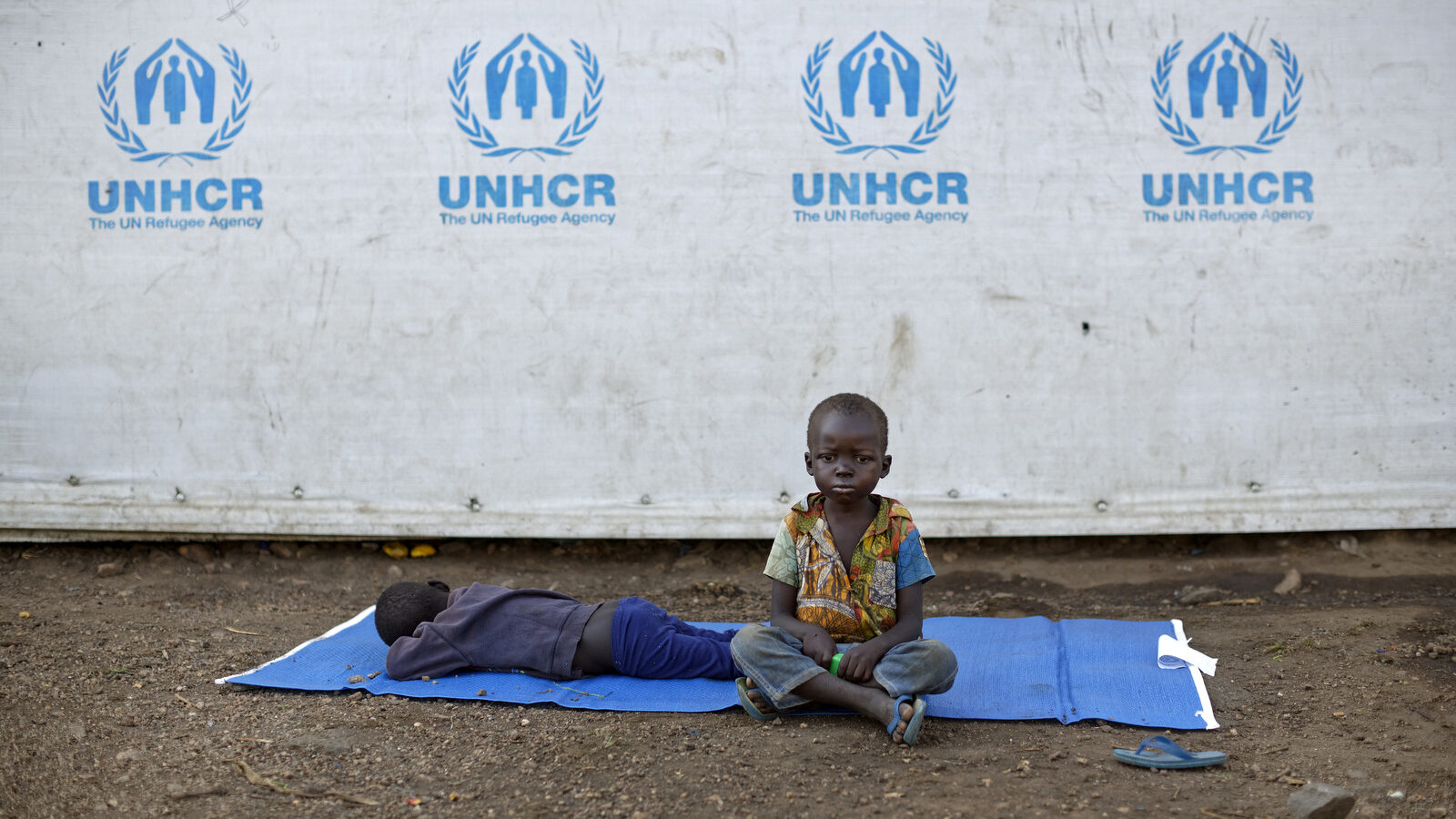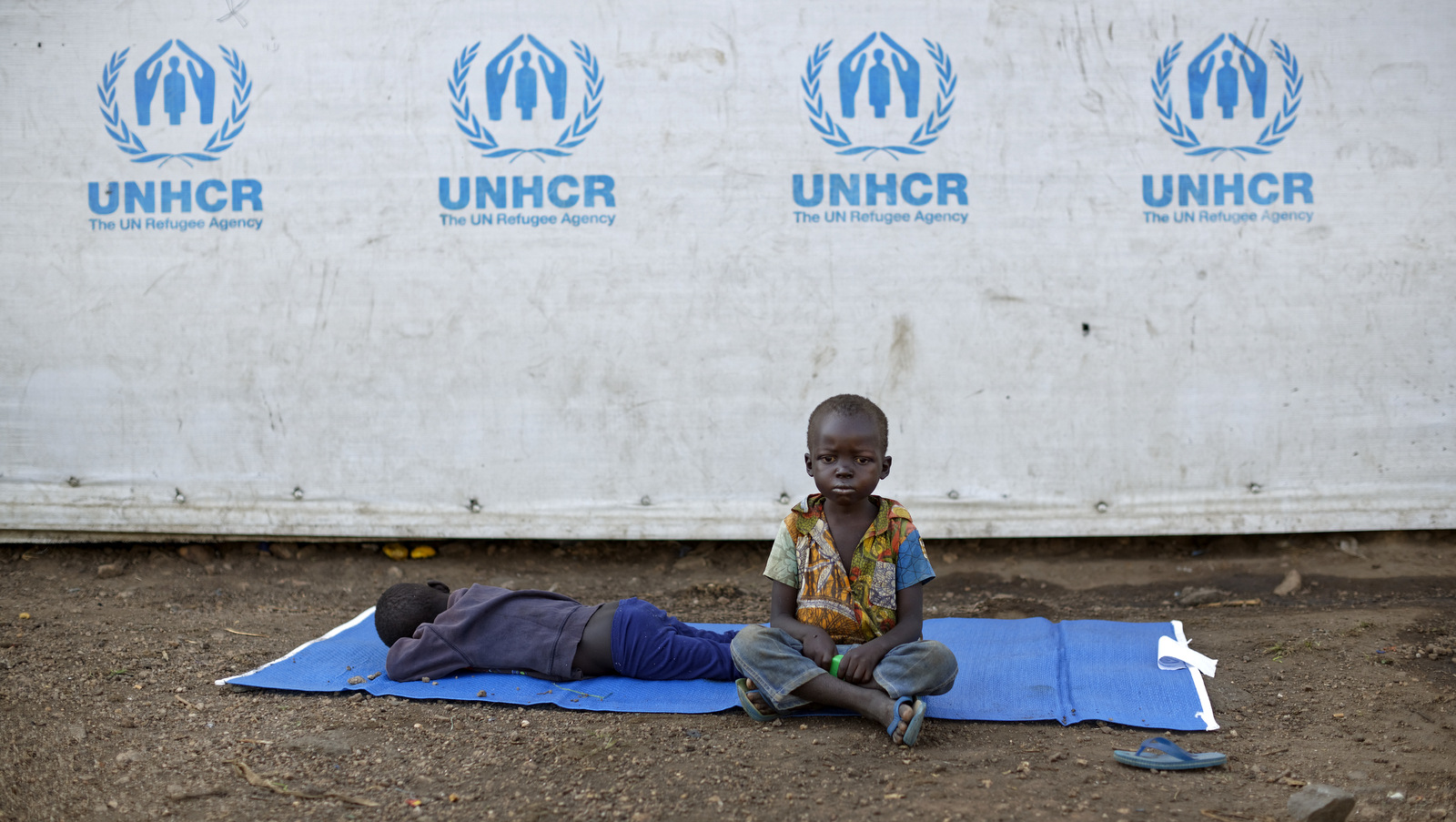
“[Famine] seems to be the last, most dreadful resource of nature…the power of population is so superior to the power in the earth to provide subsistence for man, that premature death must in some shape or other visit the human race.”
– Thomas Malthus, “Essay on Population”
NEW YORK (Analysis)– I’ve never known hunger, not in a real sense. And chances are, very few of you reading this have either. Is it because our families and communities are more loving than those throughout much of the non-Western world? Is it because we’ve simply been lucky enough to be born into an age when hunger is no longer an issue?
Or is it because most of us had the good fortune to be born in the U.S.-led empire, rather than on the receiving end of its brutality?
Indeed, it seems that in today’s world, hunger is a manifestation of economic and political imperatives more than the mere result of a bad harvest or overtaxed resources, as it was historically. Instead, it is the twin sentinels of injustice – poverty and violent oppression – which today are prerequisites for hunger and famine, along with the insuperable torment of climate change, with its attendant ecological impacts.
By examining three contemporary examples of food insecurity and famine – Yemen, the Lake Chad basin of West Africa, and South Sudan – it becomes clear that famine is today inextricably linked with geopolitics and imperialism. For in each case, it is the U.S.-led empire which is ultimately responsible for the disturbing images of skeleton-like children, nursing mothers unable to produce milk for their babies and elderly bodies wasting away to nothing.
And, it must be said, that placing the blame where it belongs (America’s empire) is not an exercise in sophistry, but rather is an attempt to go beyond the mainstream narrative which tells of poor, wretched Africans and Arabs desperate for your donations to the world’s largest charities, foundations and non-profit organizations. No mention is made of why the famine really began, what material forces are at work in undermining food security and who benefits from the starvation of millions.
And it makes sense that these issues are almost never discussed, for to do so would expose the fact that the dead felled by hunger and related illnesses are not the victims of naturally occurring forces, but are actually victims of imperialism – no different from the teenager who is murdered by a drone strike, or the child soldier who is forcefully conscripted by a U.S.-backed warlord.
But to get to the root of the issue, one must examine the political, economic and environmental forces that come together to create hunger and famine. And one simply cannot do so without addressing the imperial agenda for continued global hegemony.
Yemen: the U.S. and Saudi Arabia’s slow genocide
Yemen, which is by all measures the poorest country in the Arab world, is facing near total economic and social collapse as it continues to be crushed under the weight of a Saudi-led war backed by the United States.
Earlier this year, the United Nations released staggering new figures indicating that that at least 17 million Yemenis are facing food insecurity, with nearly 7 million considered to be in a state of emergency and more than 10 million in crisis. The UN report notes that Yemen saw a 21-percent increase in hunger levels from June 2016 to March 2017, indicating a severe crisis of historic proportions.
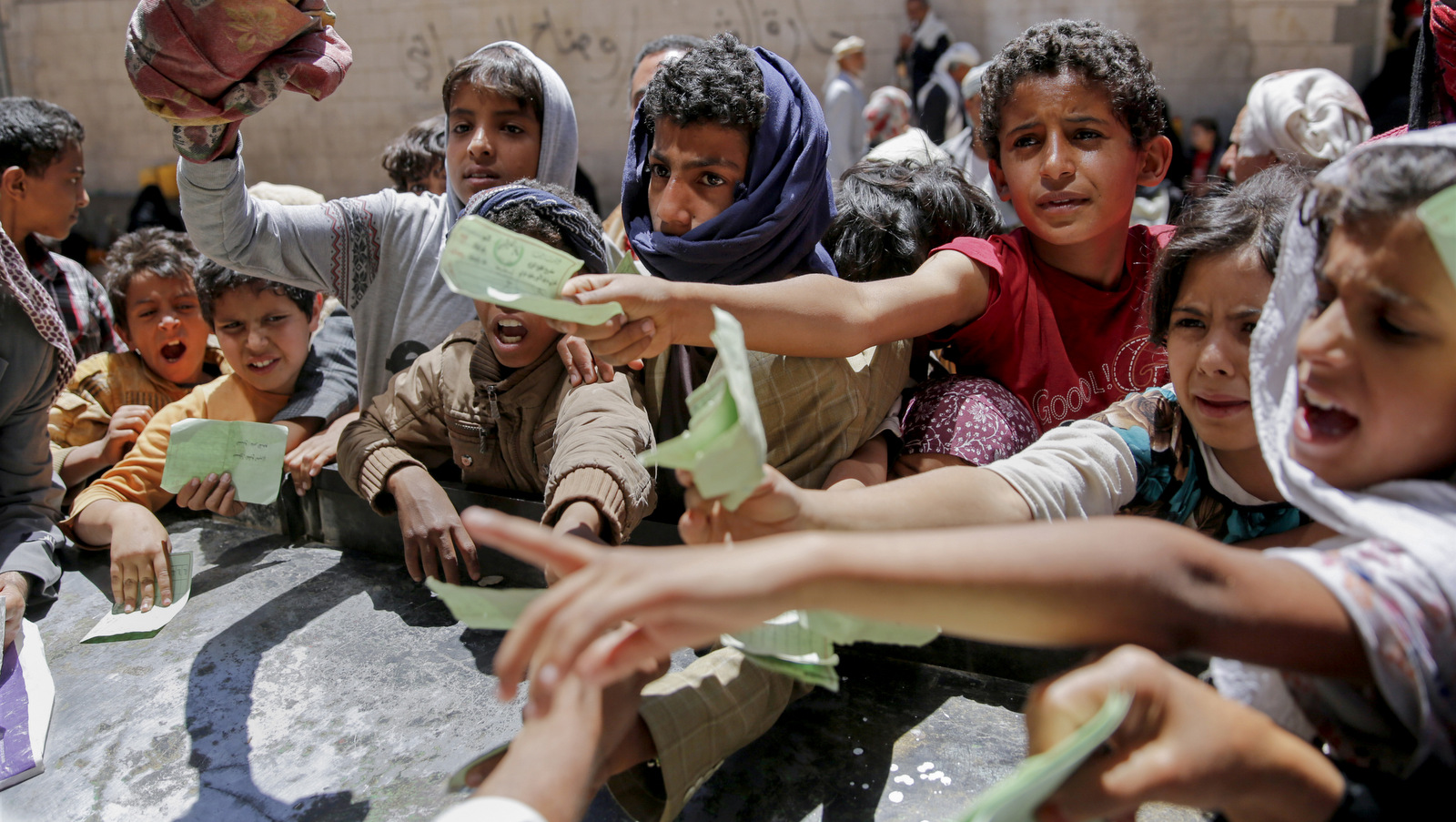
As Mark Kaye, the spokesperson for Save the Children in Yemen explained:
“The numbers affected are absolutely extraordinary…these numbers highlight that we’re at the point of no return. This crisis is happening because food and supplies can’t get into the country. Yemen was completely dependent on imports of food, medicine and fuel prior to this crisis. You have one party delaying and significantly preventing food from getting into the country, and another on the ground who are detaining aid workers or preventing aid and food from getting to areas they don’t want it to go to.”
While only making oblique reference to the parties involved, it’s clear that Kaye is referring to Saudi Arabia as the party preventing food from entering the country. Saudi Arabia, the instigator and primary belligerent in this war, has imposed a blockade on Yemen, effectively cutting it off from the outside world, and from critical supplies of food, medicine and other essential goods and services.
Related: Saudi Blockade Triggers Cholera Epidemic In Yemen, Claiming One Life Each Hour
Indeed, as investigative journalist Gareth Porter wrote in Truthout:
“The Saudi coalition has pursued a war strategy of maximizing pressure on the Houthi resistance by destroying agricultural, health and transportation infrastructure and by choking off access to food and fuel for most of Yemen’s population. The United States has enabled the Saudis to pursue that strategy by refueling the Saudi-led coalition planes bombing Yemen and selling the bombs. Equally important, however, the US has provided the political-diplomatic cover that the Saudis need to carry out this ruthless endeavor without massive international blowback.”
Consider for a moment the cruelty of the strategy employed by the Saudis and their U.S. allies in Yemen. Not only did Riyadh launch an aggressive war against a neighbor – a crime against peace, according to the Nuremberg Principles and international law – but they’ve done so while posturing as the humanitarian saviors of the country. As Saudi Foreign Minister Adel al-Jubeir cynically explained, “We have been the largest donor of humanitarian assistance in the world, by far, to Yemen.”
It is Saudi-coalition vessels and aircraft that patrol the seas around Yemen, thereby directly creating the famine there. As UNICEF reported in late 2016, “Nearly 2.2 million children in Yemen are acutely malnourished and require urgent care. At least 462,000 children suffer from Severe Acute Malnutrition (SAM), a drastic increase of almost 200 per cent since 2014. An additional 1.7 million children suffer from Moderate Acute Malnutrition.”
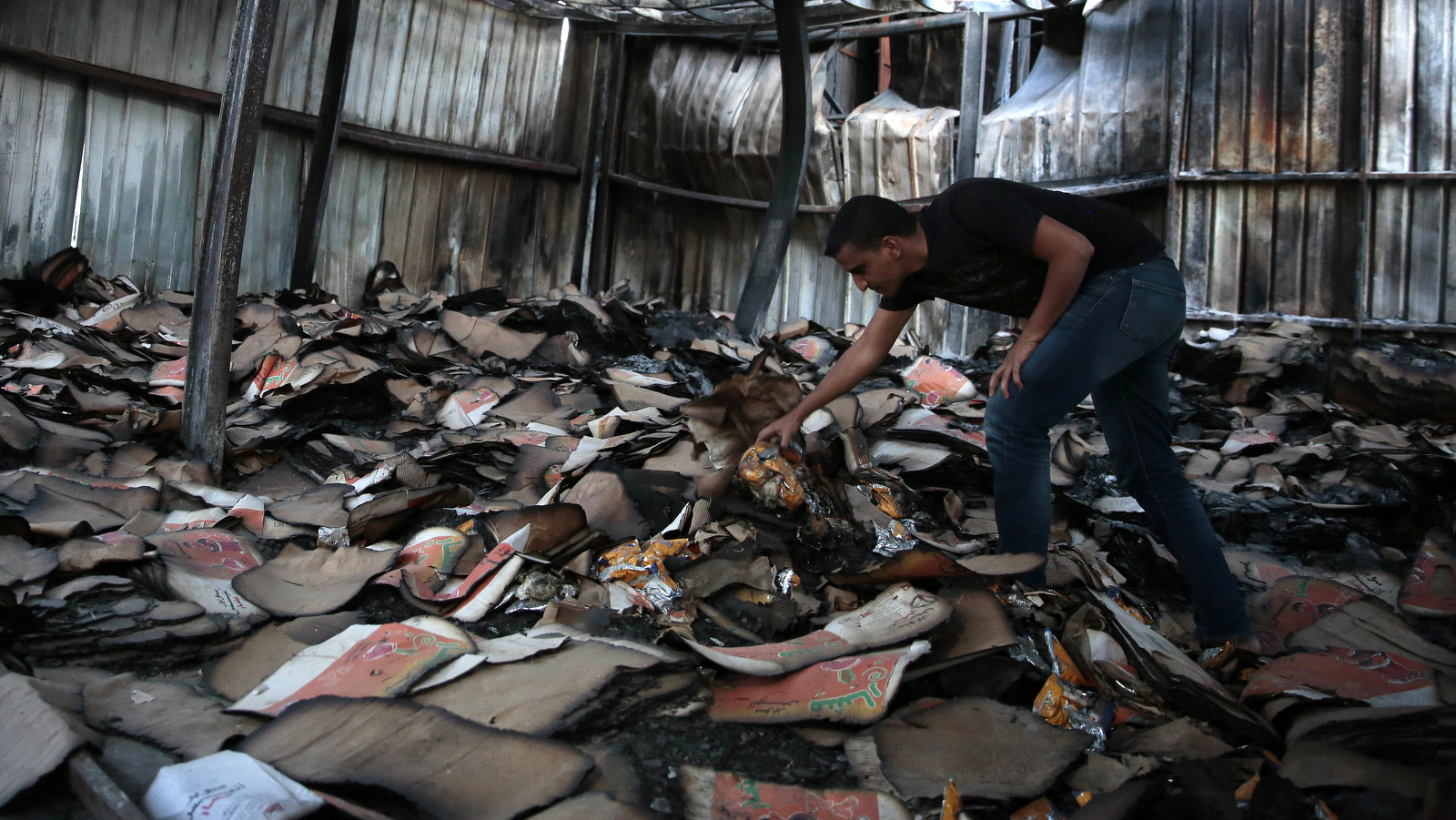
Additionally, outbreaks of cholera and other preventable diseases are directly attributable to the actions of the Saudis and their U.S. backers. Indeed, it must be remembered that none of Saudi Arabia’s crimes against Yemen could take place without the direct backing of Washington. In fact, while Obama at least paid lip service to humanitarian concerns vis-à-vis Riyadh’s atrocities in Yemen, the Trump administration has not batted an eye and has seemingly given the green light to the Saudis to do their worst by arming them to the teeth and looking the other way in regards to their genocidal policy.
And why? Because Washington wants to use Saudi Arabia’s war on Yemen as a proxy conflict with Iran. Trump, like Obama before him, cares not a whit for the lives of Yemeni children. He cares about access to the Bab el-Mandeb Strait, which separates Africa from the Arabian Peninsula, and which is one of the most critical waterways in the world for commercial shipping. The strait is also crucial to the geopolitical and strategic interests of both the U.S. and China. As if it needed to be stated, Trump is interested in “making deals,” not saving lives.
Yemen is starving because the House of Saud wants to thump its chest at Tehran. Children stare into the camera lens, their emaciated bodies a testament to the callous disregard the empire has for its victims – collateral damage, as it is often called.
West Africa: Terror, famine and the “New Great Game”
Today, the area around Lake Chad – including parts of Nigeria, Cameroon, Niger and Chad – has become ground zero for a humanitarian disaster that threatens the lives of millions. According to the UN Office for the Coordination of Humanitarian Affairs, there are at least 7.1 million people facing hunger, with 120,000 directly threatened by famine. Additionally, there are 515,000 severely malnourished children, 80,000 of whom are at risk of death from malnutrition.
What little coverage this unfolding humanitarian disaster has gotten has been dominated by talk of Boko Haram, the Nigeria-based terrorist organization that gained infamy for its mass kidnapping of the Chibok girls in 2014, a high-profile action that catapulted the terror group into the global spotlight. While it is understandable that the corporate media would focus on the good vs. evil storyline where the big, bad terrorists attack defenseless girls, the real context of the story is almost completely ignored.
Related: NATO’s War Of Resources Is Causing A Humanitarian Crisis In West Africa
As is par for the course when it comes to Africa and the former colonial powers of the West, the underlying factors are money, resources and profit. Lake Chad and West Africa are no different.
Indeed, while black Muslims sporting masks and AK-47s might be good for ratings, it is the black gold beneath Lake Chad that really sits at the center of the story.
Recent oil discoveries in and around the Lake Chad Basin have greatly altered how leaders of West African nations view their economic future. Put another way, West African leaders are scrambling to line their state coffers (and their pockets) with petrodollars.
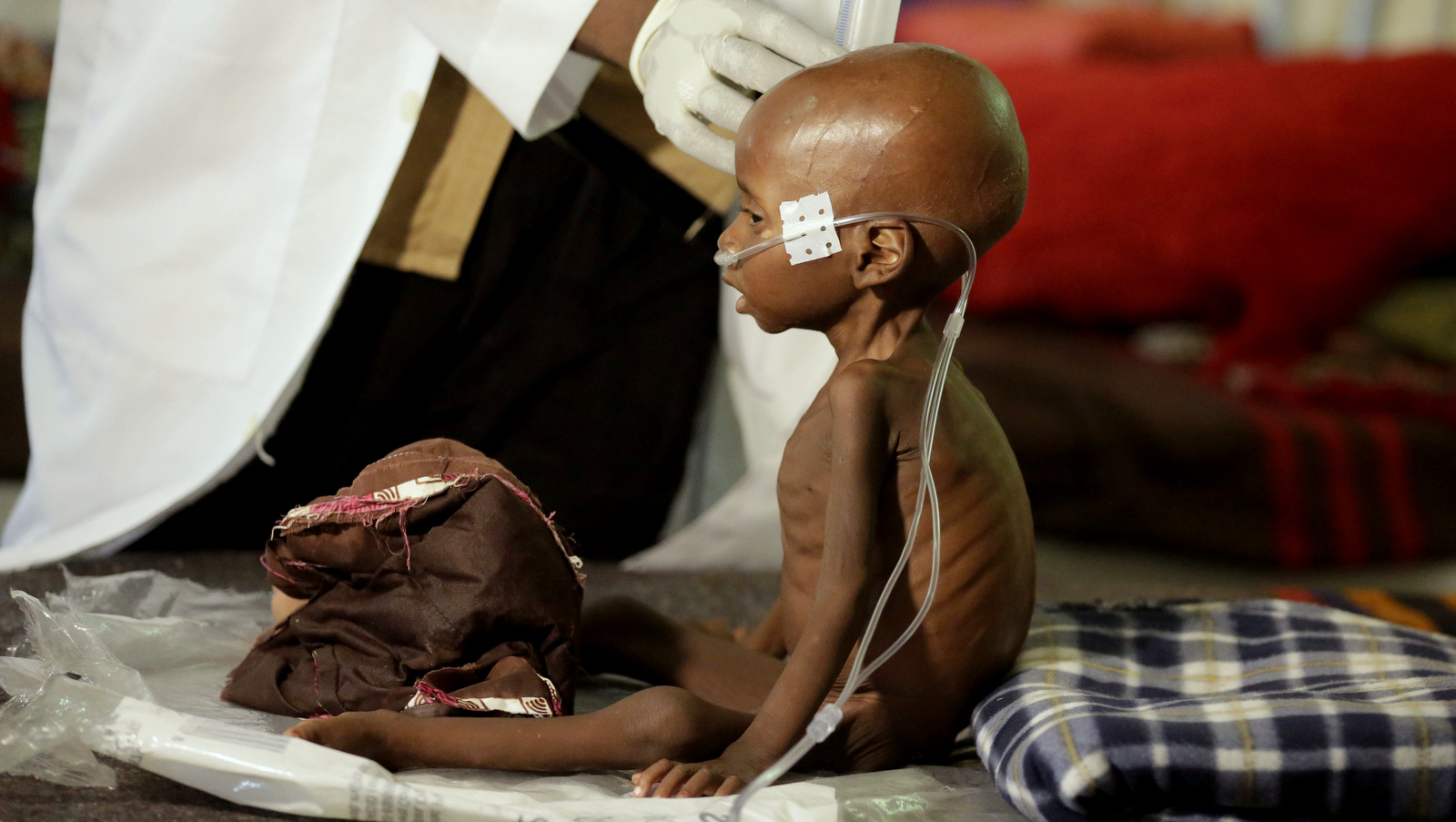
A 2010 assessment from the U.S. Geological Survey (USGS) noted that the Lake Chad Basin has “estimated mean volumes of 2.32 billion barrels of oil, 14.65 trillion cubic feet of natural gas and 391 million barrels of natural gas liquids.” The potential size of these resources has likely attracted the attention of political and business leaders, both within the region and internationally.
These discoveries have touched off something of a mini-scramble for resources among Lake Chad littoral countries, a competition that could potentially threaten regional stability as countries like Cameroon make progress in exploiting energy reserves while Nigeria continues to deal with the Boko Haram insurgency, preventing it from keeping pace.
But as with all things Africa, it is the former colonial powers that continue to wield influence and strength. And with the discovery of massive riches in West Africa, those same powers have rushed into the region to extract their pound of flesh.
In Francophone West Africa, France remains the dominant economic player, as it remains the primary trading partner for its former colonies in Niger, Cameroon and Chad. The French military has permanently stationed military forces throughout the region, ostensibly to fight terrorism and instability in the wake of the 2012 coup in Mali and the subsequent terrorist insurgency there. The ongoing Operation Barkhane has at least 3,000 French troops spread across the Sahel region, including in Niger and Chad.
With French troops on the ground and French corporations eyeing oil and gas, as well as other lucrative mining products, it’s plain to see that Paris is primarily interested in good old-fashioned colonial-style economic parasitism and competition with foreign rivals, rather than any humanitarian concerns, which are chief concerns for the French people.
As French industry minister Arnaud Montebourg stated while announcing the creation of the new venture, “Francophone African countries, notably, would like to work with us, rather than do business with foreign multinationals.” That sounds an awful lot like colonial hegemony – notice the implication that France is not “foreign” in West Africa – veiled behind the façade of free market choice.
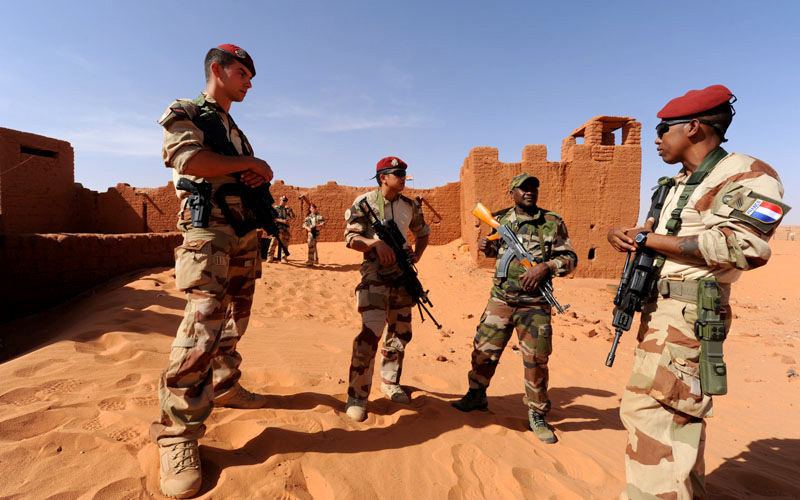
Consider also that France is heavily dependent on nuclear power, with nearly 80 percent of its electricity derived from nuclear energy. This would certainly explain why France has put such an emphasis on West Africa. As Think Africa Press noted in 2014, “France currently sources over 75 percent of its electricity from nuclear energy and is dependent on Niger for much of its immediate and future uranium supply.”
Like France, the U.S. is now heavily involved on the ground in West Africa – around the Lake Chad Basin, specifically. Washington dominates the skies over the region with its far-flung network of drone bases. In Chad, the U.S. has permanently stationed military personnel, ostensibly to search for the Chibok girls. However, the Obama White House’s own press statement betrayed a much more imperialistic objective: “These personnel will support the operation of intelligence, surveillance, and reconnaissance aircraft for missions over Northern Nigeria and the surrounding area.”
Add to this the fact that the U.S. now operates two critical drone bases in the region, with one base in Cameroon’s city of Garoua and another in the Nigerien city of Agadez, and it becomes clear that the US, in fact, has drones and other surveillance covering the entire Lake Chad Basin.
This begs the question: how could we possibly be seeing a famine and humanitarian disaster unfolding quite literally at the feet of U.S. and French military personnel if those forces are there purely for humanitarian reason? Surely nothing could be more appropriate for a humanitarian mission than to save men, women, and children from the ghastly fate of starvation and malnutrition.
But the sad truth is that the empire has little interest in saving the lives of millions of Nigerians, Cameroonians, and Nigeriens. Its focus is in extracting resources and preventing its Chinese rival from horning in on the action as it has elsewhere on the continent.
And in the midst of Washington’s “New Great Game” with Beijing, millions of Africans are paying with their lives.
South Sudan: New country, old story
When the nation of South Sudan was carved out of what had formerly been a unified Sudan by the United States and the “international community,” some argued that civil war was inevitable. Indeed, with simmering conflicts such as the war in Darfur and periodic clashes in Abyei Province, South Sudan seemed a likely candidate to become a failed state within a very short time. And that’s precisely what happened.
Today, the country faces mass starvation, and in some areas, famine. Though the United Nations recently announced that South Sudan is no longer facing famine, it also highlighted the fact that more than two million people there are on the brink of starvation, with many more suffering from malnutrition.
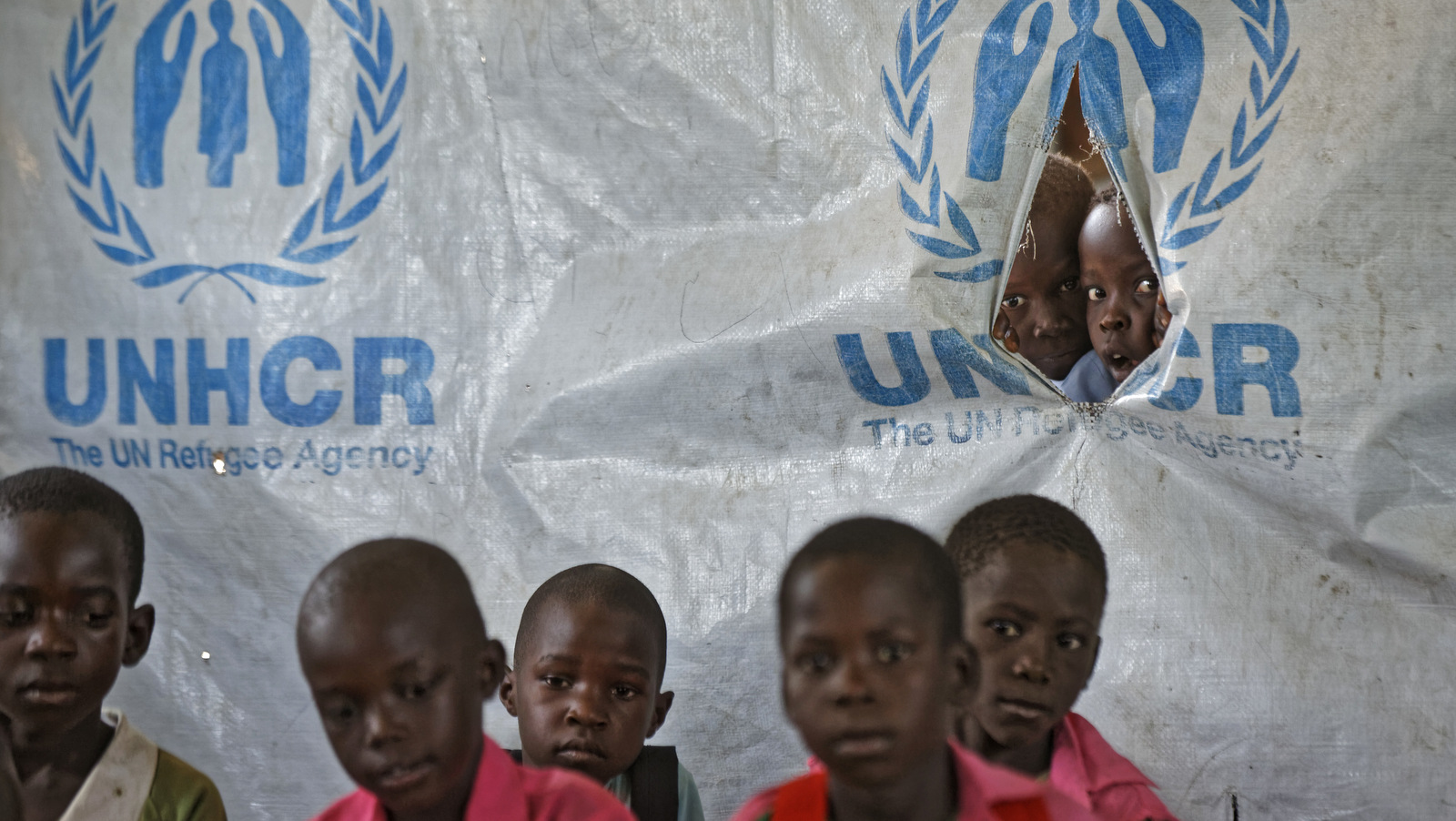
According to the UN’s Food and Agriculture Organization (FAO) and South Sudan’s National Bureau of Statistics, at least six million people, or half the country’s population, will face extreme food shortages between June and July this year. FAO representative Serge Tissot concisely explained, “People are in a catastrophic situation.”
But why? What has created this catastrophe?
On the surface, the famine and food insecurity have been caused by a civil war which seems to be a straightforward power struggle between President Salva Kiir and his former deputy, Riek Machar. And indeed, it is. The war has led to political and economic disarray, with all the attendant problems ranging from forced conscription of children to the destruction of infrastructure and much worse.
However, as with all conflicts in Africa, the truth is far more complex and rooted in neo-colonial interests on the continent. In this case, South Sudan is merely the latest victim of the curse of oil – the sad reality that countries with oil resources are always going to be targets for the U.S.-NATO empire. This is doubly true in South Sudan’s case, considering the centrality of the Sudan region to China’s long-term ambitions both on the continent and globally.
Indeed, by 2011, when the United States and its allies ultimately divided the nation of Sudan in two, with oil resources having been incorporated into the new South Sudan, Sudan had become essential to China’s investment and economic development. In fact, Sudan accounted for 8 percent of China’s total oil imports (China being the recipient of a whopping 78 percent of total Sudanese exports). This makes it quite clear that any attempt to divide Sudan into two countries was a de facto attempt to deprive China of a principal trading partner.
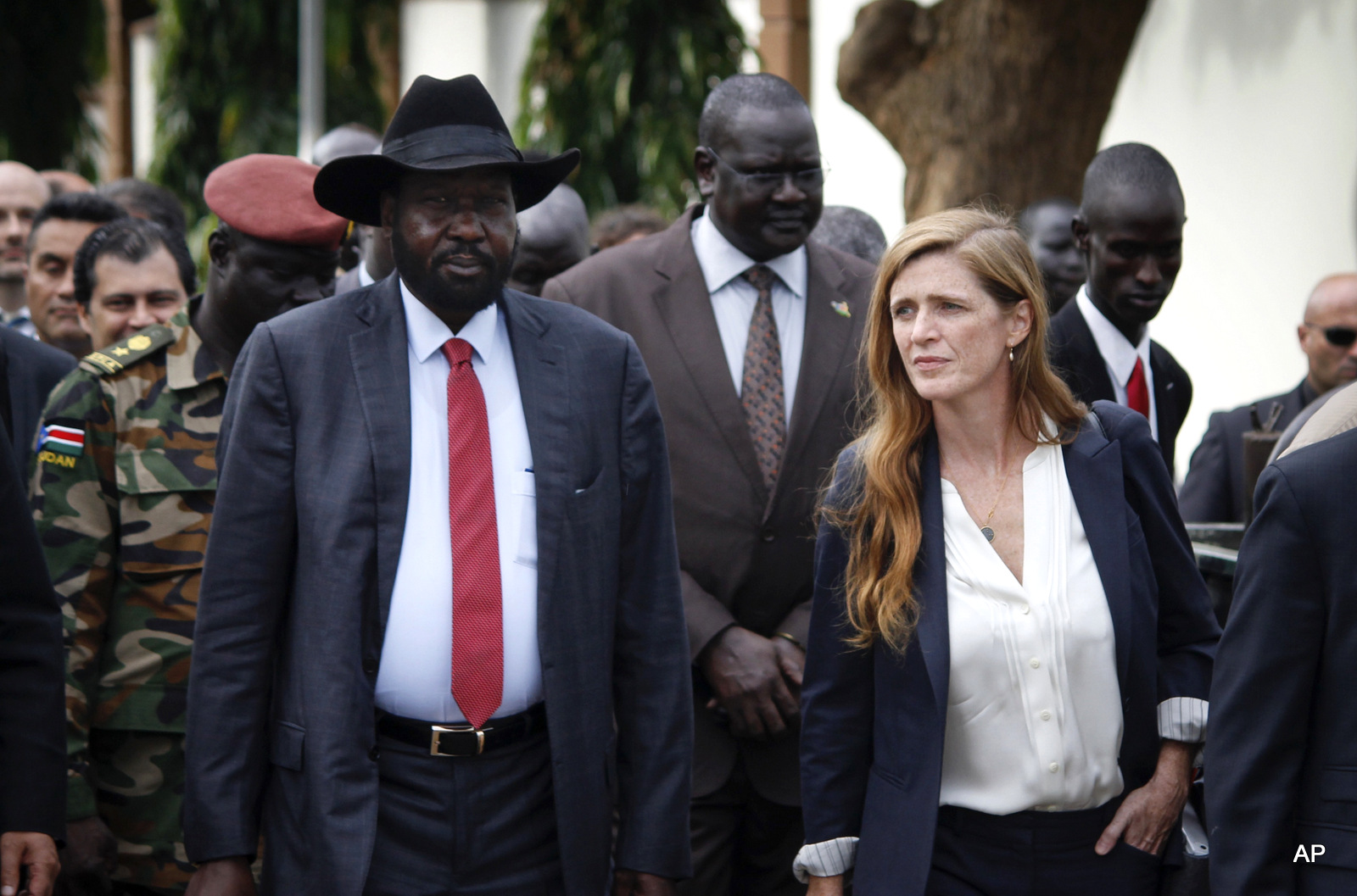
And with the 2011 partition of Sudan and the creation of the independent nation of South Sudan, Washington and its allies believed they had dealt a serious blow to Beijing’s aspirations in Africa. But this was not to be, as Beijing moved quickly to establish important economic ties with the newly constituted South Sudanese government under President Kiir.
Since 2011, Beijing has entrenched itself as the dominant trading partner and economic benefactor behind South Sudan, with tens of billions invested, especially in the oil sector. And so, it should come as no surprise that South Sudan has been plunged into a civil war that has made it a very tricky proposition for the Chinese as they seek to expand their economic hegemony in east Africa.
Surely the deaths of hundreds of thousands, and the misery of millions is a small price to pay for the profit margins of ExxonMobil, BP, and Shell. Surely Lockheed, Boeing, and Raytheon are a worthy trade-off for the lives of untold thousands of infants. Of course, outmaneuvering China is well worth watching an entire nation slide into the abyss. Such is the rationale of imperialism and neo-colonialism.
Related: South Sudan: US Stirs Brew Of Blood & Oil As China Threatens Western Hegemony
More than two hundred years ago, Thomas Malthus articulated the true logic of British imperialism: the lives of the poor meant little in the context of the life of the British Empire; famine was just nature’s way of thinning the herd, so to speak. Malthus laid the foundation for the imperial logic that has guided the political and geopolitical considerations of the British and US Empires since. When he spoke of “premature death” visiting the human race, what he really meant was that this was good, this was natural. And who could possibly want to challenge nature?
Two hundred years later Mike Davis, in his classic work “Late Victorian Holocausts,” noted that rather than seeing the famines of the Late Victorian period of the British Empire as merely natural and benign phenomena, they should instead be viewed as powerful drivers of imperialism and a world economic system designed around British commercial interests – capitalism, in other words.
While climatic changes and other factors have played into those famines, just as they do today – climate change does remain a principal driver of famine throughout the Global South – it was imperialism that used those famines as business and investment opportunities.
Today, the famines and food insecurity we see around the world can be directly attributed to the same world system, the same sets of economic and political imperatives, the same lack of humanity. Because try as we may to pretend otherwise, we are no better than those who came before us.
So long as the Empire and its capitalist economic system continues its global hegemony, we will continue to see the skeletal faces and emaciated bodies of children whose only crime was being born in the wrong part of the world.


